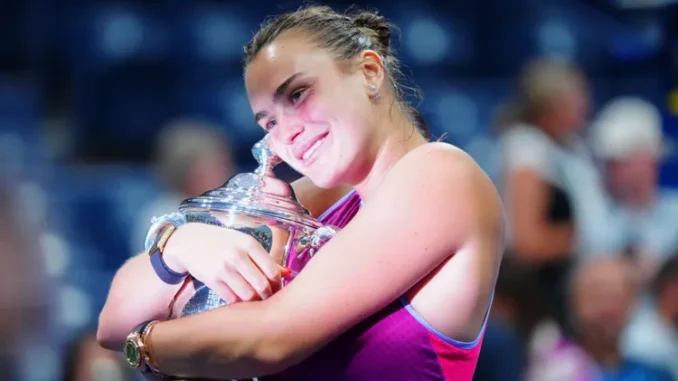
In the high-stakes world of professional tennis, where mental fortitude often trumps raw talent, Aryna Sabalenka has emerged as an unstoppable force. On May 8, 2025, the 27-year-old Belarusian, ranked world No. 1, shared the secret behind her relentless dominance during a press conference ahead of her second-round match at the Internazionali BNL d’Italia in Rome. “I believe short memory is the key,” Sabalenka declared, revealing her cold-blooded approach to shrugging off setbacks and staying laser-focused on the next point, game, and title. With three Grand Slam titles, a staggering 11,118 ranking points, and a commanding lead in the 2025 WTA season, Sabalenka’s philosophy is not just a mantra—it’s a blueprint for rewriting the sport’s hierarchy.
Sabalenka’s rise to the pinnacle has been a journey of resilience and reinvention. Her 2025 season, marked by titles in Brisbane, Miami, and Madrid, has seen her amass a 28-5 record, including a thrilling 6-3, 6-2 victory over Coco Gauff in the Madrid Open final. This triumph, her second Madrid title, showcased her ability to dominate on clay, a surface once considered her Achilles’ heel. “I think I’ve got everything to be a good player on the clay courts,” she said, pointing to her improved topspin and tactical versatility honed in Miami. Her Rome campaign, where she faces either Anastasia Potapova or Wang Xiyu next, is a chance to build on her 2024 semifinal run and challenge Iga Swiatek’s iron grip on the Foro Italico, where Swiatek boasts a 20-1 record.
The “short memory” philosophy Sabalenka champions is rooted in her ability to move past defeats without lingering on doubt. Her 2024 US Open title, a hard-fought victory over Jessica Pegula, followed a semifinal loss to Gauff at the same event in 2023, a defeat that could have derailed a lesser player. “Accept, learn, and move on,” she explained, a mindset that has propelled her to join Serena Williams and Swiatek as one of only three women in the past decade to surpass 11,000 ranking points. Posts on X have hailed her as “unstoppable,” with fans marveling at her ability to reset mentally after tough moments, like her controversial Madrid match against Marta Kostyuk, where accusations of gamesmanship didn’t faze her. “It’s always tough to read about yourself in the media, especially when it’s not nice things,” she admitted, but emphasized her focus on her team and game.
Sabalenka’s rivalry with Swiatek, the world No. 2, adds a compelling layer to her dominance. Their clay-court battles, including Swiatek’s 2024 Rome final win and Sabalenka’s 2023 Madrid triumph, are defined by grueling rallies and high drama. “It’s always kind of like leg-busters,” Sabalenka said, relishing the challenge of facing Swiatek, who has struggled in 2025 with a Madrid semifinal loss and a doping suspension that sidelined her for three months. Sabalenka’s empathy for Swiatek’s off-court challenges—she’s been there herself—doesn’t dull her competitive edge. “I don’t really think about her results. I’m just focusing on my game,” she stated, a testament to her ability to compartmentalize.
Off the court, Sabalenka’s charisma shines. Her advocacy for fairer prize money, alongside Swiatek and others, reflects her commitment to the sport’s future. Her Rome draw, potentially featuring Madison Keys or Danielle Collins, is no cakewalk, but Sabalenka’s confidence is unshakable. “I’m super happy with my level right now,” she said after Madrid, a sentiment echoed by her 15-match clay-court winning streak at WTA 1000 events. As Roland Garros looms, where she’s a +350 favorite despite never reaching the final, Sabalenka’s short memory and relentless drive position her to cement her legacy. In a sport that tests the mind as much as the body, her cold-blooded formula—forget, focus, conquer—is rewriting the WTA’s story, one thunderous forehand at a time.
Leave a Reply